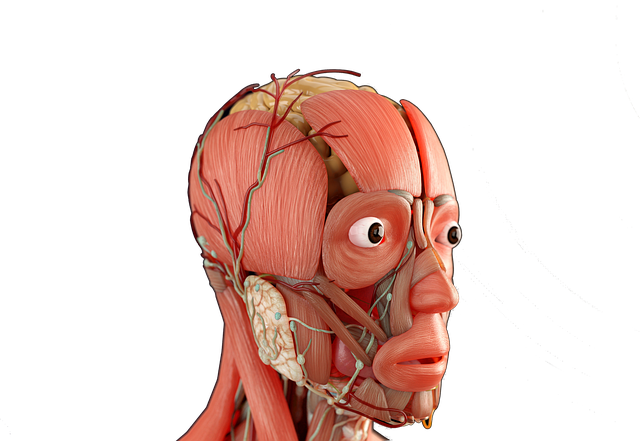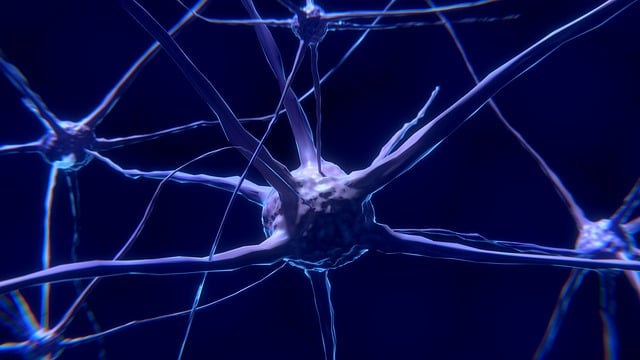The Endocannabinoid System (ECS) is a master regulator of appetite, digestion, and overall body balance. By interacting with CB1 and CB2 receptors in the brain and gut, endocannabinoids like anandamide and 2-AG influence hunger cues, satiety signals, and digestive processes. Dysregulation of the ECS contributes to obesity and eating disorders, making its understanding crucial for developing innovative therapies. Research into the ECS's role in appetite control and digestive health holds promise for treating conditions like inflammatory bowel disease and enhancing overall well-being through targeted modulation and dietary interventions.
The endocannabinoid system (ECS) plays a pivotal role in regulating appetite and digestion, influencing our hunger signals, food choices, and overall metabolic health. This complex network of receptors and endocannabinoids is a key focus in understanding human physiology. Our article explores the intricate relationship between cannabinoids, ECS, and digestive wellness. We delve into how these compounds impact eating disorders, gut-brain communication, and potential therapeutic applications for various gastrointestinal conditions.
The Role of the Endocannabinoid System in Appetite Regulation

The Endocannabinoid System (ECS) plays a pivotal role in regulating appetite and digestion, contributing to the complex interplay between food intake and physiological processes. Comprising endocannabinoids, receptors, and enzymes, this system modulates hunger cues, satiety signals, and energy balance. Understanding the ECS is crucial for comprehending how our bodies govern eating behaviors.
Endocannabinoids, like anandamide and 2-AG, act as lipid-based neurotransmitters, binding to CB1 and CB2 receptors located in various brain regions and gut tissues. This interaction influences not only the sensation of hunger but also the release of digestive enzymes and hormone secretion, ultimately affecting digestion and nutrient absorption. Dysregulation of the ECS has been linked to obesity and eating disorders, highlighting its significance in maintaining a healthy balance in appetite and metabolism.
Cannabinoids and Their Impact on Digestion

Cannabinoids, compounds found in the cannabis plant, have garnered significant attention for their potential effects on various physiological processes, including digestion. The impact of these substances is closely tied to our understanding of the endocannabinoid system (ECS), a complex signaling network within the human body. This system plays a pivotal role in regulating numerous functions, from appetite control and gut motility to inflammation and pain perception.
The ECS consists of endocannabinoids (the body’s natural cannabinoids), receptors (CB1 and CB2), and enzymes responsible for their synthesis and degradation. Cannabinoids from cannabis interact with these receptors, modulating the transmission of signals between cells. For instance, THC, one of the most well-known cannabinoids, binds to CB1 receptors in the brain and gut, potentially influencing appetite, digestion, and metabolism. This interaction can lead to increased food intake and changes in gastrointestinal motility, offering insights into the complex relationship between cannabis consumption and digestive health.
How Endocannabinoids Modulate Hunger Signals

The endocannabinoid system (ECS) plays a pivotal role in regulating appetite and digestion, two fundamental physiological processes closely linked to overall health. Endocannabinoids, derived from our own bodies, interact with specific receptors in the brain and other organs, influencing hunger signals and promoting balanced eating behaviors. When we consume food, certain compounds in the digestive tract trigger the release of endocannabinoids, which then signal the brain to feel satiated, helping to prevent overeating.
This intricate system ensures that our bodies maintain a healthy balance by modulating both appetite stimulation and suppression. Understanding how endocannabinoids regulate hunger can offer insights into managing eating disorders and metabolic conditions. By harnessing this knowledge, researchers aim to develop therapeutic strategies that target the ECS, potentially providing new avenues for treating obesity and related health issues in today’s digital era.
Exploring the Connection Between Cannabis and Eating Disorders

The connection between cannabis and eating disorders is an intriguing area of study, especially as we continue to unravel the complex roles of the endocannabinoid system (ECS) in various physiological processes. The ECS plays a significant part in regulating appetite, food intake, and satiety—all crucial factors in maintaining a healthy balance with eating disorders. Research suggests that cannabis compounds, particularly THC and CBD, can interact with ECS receptors in the brain, potentially influencing eating behaviors.
For individuals struggling with anorexia nervosa or bulimia, cannabis use has shown mixed results. While some studies indicate that it may help stimulate appetite and reduce nausea, others suggest potential risks of exacerbating disordered eating patterns due to its effect on reward pathways. Understanding this intricate relationship is vital for developing therapeutic strategies that leverage the ECS for treating co-occurring conditions, ensuring a comprehensive approach to managing both eating disorders and the physiological disruptions they cause.
Understanding the Gut-Brain Axis in Digestive Health

The gut-brain axis, a fascinating connection between our digestive system and central nervous system, is a key player in overall health, especially when it comes to appetite and digestion. This intricate relationship highlights how our gut’s health directly influences our mental state and vice versa. The endocannabinoid system (ECS), an essential component of this axis, plays a pivotal role in regulating various physiological processes, including hunger, satiety, and the perception of pleasure from food.
By modulating neurotransmitters and neuropeptides, the ECS helps maintain homeostasis within the gut, ensuring optimal digestion and nutrient absorption. This system’s activity is triggered by the intake of cannabinoids, naturally occurring compounds in our bodies, as well as exogenous sources like plant-based phytocannabinoids. Understanding the gut-brain axis and the ECS offers valuable insights into digestive health, suggesting that nurturing this relationship could lead to improved appetite control and overall well-being.
Potential Therapeutic Uses of Cannabinoids for Digestive Issues

Cannabinoids, with their potential therapeutic effects, have garnered interest in the field of digestive health. The understanding of the endocannabinoid system (ECS) is pivotal here. This complex physiological system plays a crucial role in maintaining homeostasis within the body, including regulating appetite and digestion. ECS receptors are present in various gastrointestinal structures, suggesting its involvement in digestible processes.
Research indicates that cannabinoids can interact with these receptors, offering potential relief for digestive issues such as inflammatory bowel disease (IBD) and chronic indigestion. They may help reduce inflammation, modulate immune responses, and stimulate appetite—all of which are beneficial for individuals facing gastrointestinal challenges. This emerging area of study opens up exciting possibilities for alternative treatments in the management of digestive disorders.
Future Research Directions: Decoding the Complex Relationship

The intricate interplay between appetite, digestion, and the endocannabinoid system (ECS) presents a fascinating area for future research. Unraveling the complex relationship involves delving into the precise mechanisms by which ECS cannabinoids influence feeding behaviors and gastrointestinal processes. One key direction is to explore how these cannabinoids interact with various brain regions involved in hunger, satiety, and food reward, such as the hypothalamus. Further studies could also investigate the potential of targeted ECS modulation to treat eating disorders or improve digestive health outcomes.
Additionally, understanding the impact of dietary factors on the ECS response adds another layer of complexity. Future research should examine how different nutrients, particularly those with anti-inflammatory properties, can modulate ECS activity and, in turn, affect appetite regulation and digestion. This knowledge could lead to innovative dietary strategies for managing metabolic disorders and improving overall gut health.
